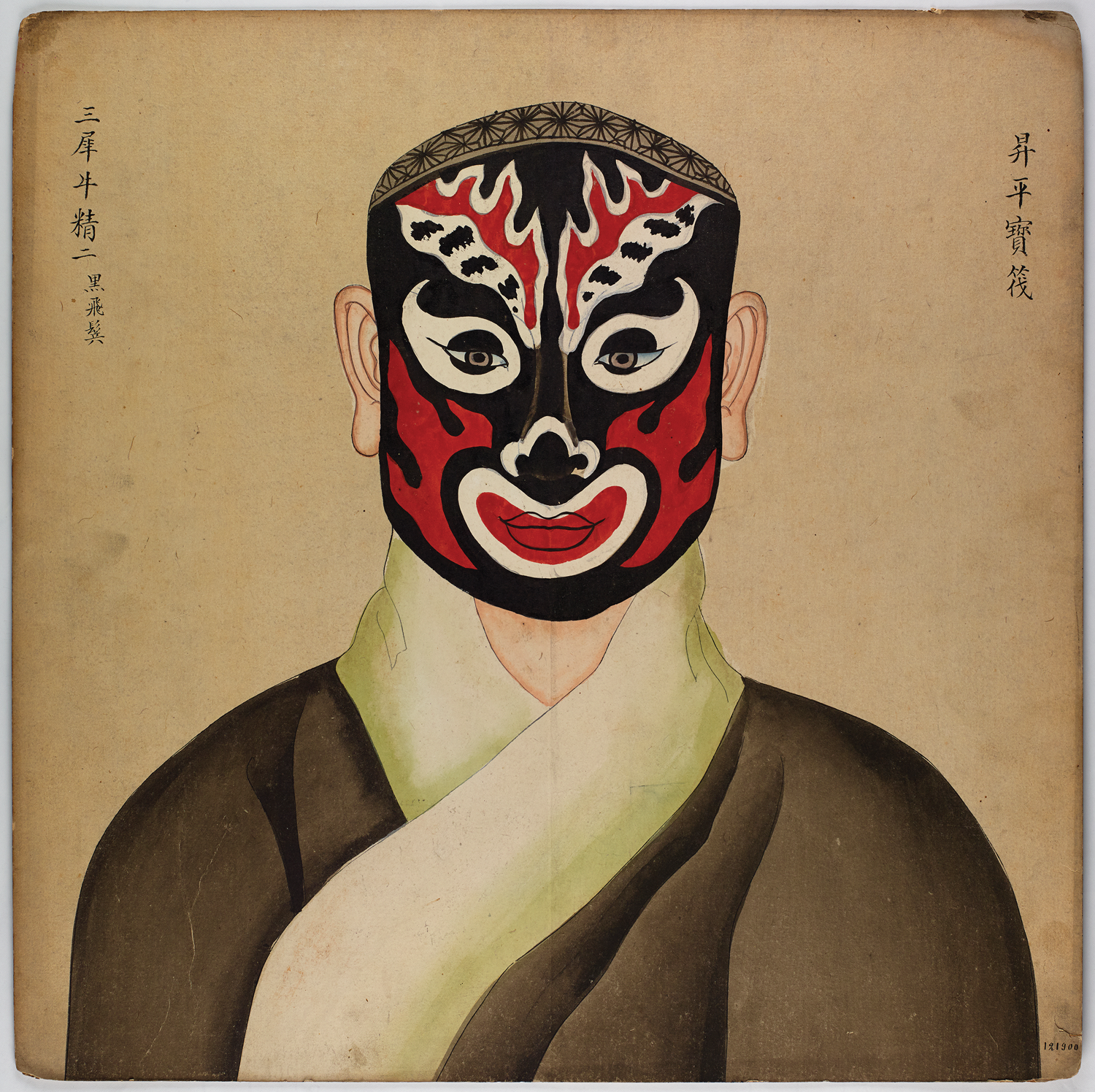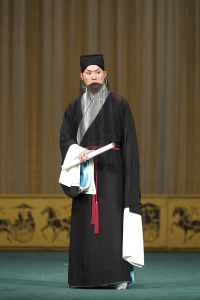
Talk about China in Western media tends to hover between competitive—the country is a geopolitical rival and a burgeoning superpower—and ambitious—it’s the next big market, a capitalistic bonanza waiting to happen in a communist country. But less well known is another vision of China: its artistic vision, drawing from centuries of culture and tradition.
UChicago Arts aims to highlight Chinese artistry through a five-month festival called “Envisioning China.” There will be ongoing museum exhibits, concerts, lectures, and film screenings throughout campus from until mid-June. The festival will showcase both traditional Chinese art forms and contemporary artists’ responses to those traditions.
The festival has been years in the making. “Several years ago, professor [of art history and East Asian languages] Judith Zeitlin began work on the Smart Museum’s current exhibition (‘Performing Images,’) and spoke with Court Theatre about a production of ‘M. Butterfly,’” said Leigh Fagin, director of the festival. “She approached us with the idea to partner with her to present a Chinese opera company. We soon realized there were other arts organizations on campus working on things connected to Chinese arts and culture, so we invited their ideas.”
Fagin noted that there were many faculty and students interested in the art and culture of China, and “there’s also obviously a lot of amazing work being done by Chinese Americans. So we were interested in exploring these intersections.”
Professor Lawrence Zbikowski, Deputy Provost for the Arts, explained that the title of the festival was chosen “because of the wide range of perspectives on China, past and present, that will be offered.” There are over forty events to choose from; here are some of the highlights.
M. Butterfly
Court Theatre will finish its 2013-2014 season with a gender-bending romance that explores love, lust, and gender politics. “M. Butterfly,” a Tony Award-winning play written by David Henry Hwang and directed by Charles Newell, skewers orientalist stereotypes with a plot that brings together Chinese opera and Puccini’s “Madama Butterfly.” A French ambassador in China (Sean Fortunato) falls in love with a Chinese opera singer (Nathaniel Braga), unaware that men play all roles in Chinese operas. The affair goes on for decades before the ambassador discovers the truth: his lover is a man, and a spy for the Chinese government.
The most unbelievable part of the play is that it’s based on a true story. French diplomat Bernard Boursicot was arrested in 1986 on charges of espionage; he attempted to kill himself in jail when he learned that his lover of twenty years, opera singer Shi Pei Pu, was in fact a man. Boursicot became an international laughing stock, but in Hwang’s play, the story takes on a tragic resonance: it becomes a symbol of the depth of the West’s illusions about the East.
Court Theatre, 5535 S. Ellis Ave. May 8 through June 8. See site for showtimes. (773)753-4472. courttheatre.org
“Performing Images” and “Inspired by the Opera” at the Smart Museum
During the Qing Dynasty (1644-1912), Chinese opera was at the heart of the country’s cultural life, in the countryside village as much as in the imperial court. Images of the traditional characters and plots of Chinese operas could be found on a wide variety of decorative objects, including prints, ceramics, books, painted fans, and even clothing.
The Smart Museum displays almost eighty of these objects in the small but visually stunning exhibit “Performing Images.” Highlights include a colorful stage gown for a young maiden character that could be described as a real-life Technicolor Dreamcoat; an intricately carved rhinoceros horn cup depicting famous scenes; and illustrations of characters transformed into mythical beings with elaborate masks and make-up.
The exhibit next door, “Inspired by the Opera,” features photography and video by contemporary Chinese artists based on the opera tradition. One series of black-and-white photographs, for example, portrays elderly men who still perform in their old roles with the same elaborate costumes and stage make-up. The “Performing Images” exhibit feels like a fantasy come to life, filled with dashing characters, impossible romances, and strange and wondrous acts of magic. “Inspired by the Opera” places the opera tradition in its more realistic and bittersweet modern context.
Smart Museum of Art, 5550 S. Greenwood Ave. Through June 15. Tuesday-Wednesday, 10am-4pm; Thursday, 10am-8pm; Friday, 10am-4pm; Saturday-Sunday, 11am-5pm. (773)702-0200. smartmuseum.uchicago.edu
A Night at the Peking Opera

The Tianjin Peking Opera Company and opera star Ling Ke will make their Chicago debuts this April, allowing audiences a rare opportunity to see Chinese opera live. They will perform scenes from operas with such intriguing titles as “Wu Song Kills the Tiger,” “A Dragon Flirts with a Phoenix,” and “The Ghost of the Black Pot.” UChicago Arts worked closely with the Consul General of the People’s Republic to bring this show to the Chicago stage for one weekend.
“Chinese opera is an amazing and deeply historical theatrical-musical medium that gives listeners an amazing insight into the history and tradition of China,” said Professor Zbikowski. Professor Zeitlin, in an interview for the UofC’s Winter Arts and Culture Guide, noted that there are four main character types in Chinese opera—the female lead, the male lead, the villain, and the clown —and each require specialized training. Actors in martial roles often go through “extensive acrobatic training,” while other actors learn the myriad hand gestures that have been codified over centuries to match each role. The Saturday performance will allow audiences to see authentic Chinese opera, complete with traditional instruments, elaborate costumes, and actors who specialize in these roles, while the free Sunday performance will feature Ling Ke in a recital of famous arias.
Logan Center for the Arts, 915 E 60th St. Saturday, April 12, 7:30 PM. $20 general, $10 students. Sunday, April 13, 2pm. Free. (773)702-2787. arts.uchicago.edu

The drama of the revitalisation of Chinese culture in the modern era has always been important to me. So too the post-narrative affects of colonial readings on love and desire, devotion and responsibility, and the work of the nation-state in rendering complete a confessional sense of importunity and its significance of witness to ecclesial positions among British and American rivals of the new geo-regionality. Is the theater ever isolated in the resurrection of human drama as uniquely social, and what can these classics of oriental games and their thema of “bit-a-brac” folk religion tell us about the lasting or transcient canonicity of preservation and enduring audience appeal? Does the theater always work in coloniality and is religion thus always about the image as narrative power?